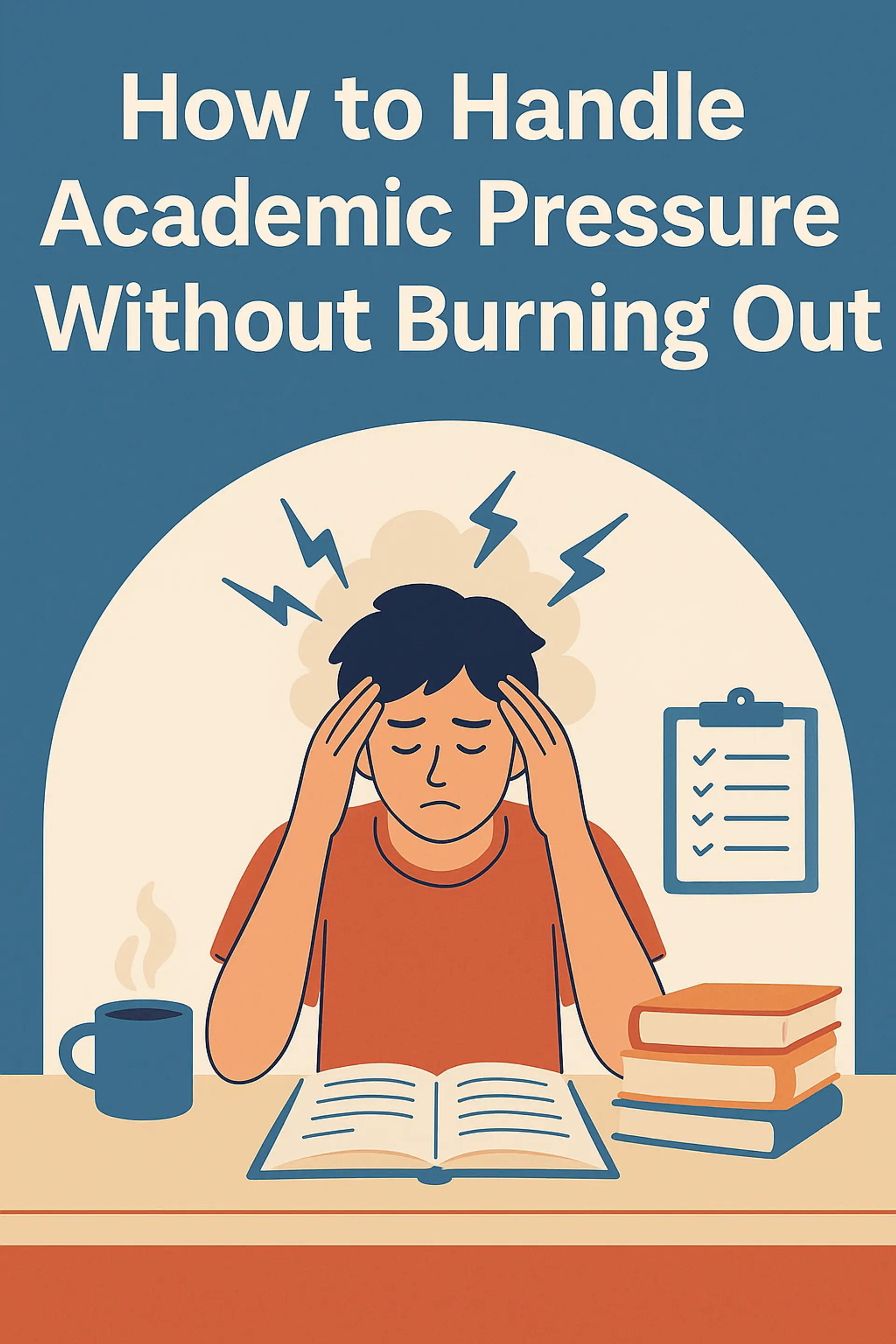Academic Pressure Is Normal. Burning Out Is Not.
2025-06-28 • Hire a Tutor Editorial Team

Academic Pressure Is Normal. Burning Out Is Not.
At some point in college, many students experience the same moment:
You are sitting in front of your notes, your screen is open, time is passing—but nothing is sticking.
You are not lazy.
You are not unmotivated.
You are likely overwhelmed.
Academic pressure builds quietly. Deadlines overlap. Expectations pile up. Rest is postponed. Many students only realize something is wrong when their focus drops, motivation disappears, and even simple tasks feel exhausting.
Burnout does not happen overnight. It develops when pressure continues without recovery.
The Difference Between Healthy Pressure and Burnout
Not all stress is harmful. Short-term academic pressure can increase focus, encourage discipline, and help students meet deadlines.
Burnout is different.
Burnout occurs when stress becomes constant and recovery is ignored. Instead of motivating, pressure becomes draining.
Common signs of student burnout include:
- Feeling tired no matter how much you sleep
- Trouble concentrating or remembering information
- Losing interest in classes you once cared about
- Increased anxiety, irritability, or emotional numbness
- Feeling overwhelmed by routine assignments
These signals are not weakness. They are warnings.
Studying Longer Hours Often Makes Things Worse
Many students respond to pressure by studying longer hours, skipping breaks, and sacrificing sleep. This approach feels productive—but it often backfires.
When the brain is exhausted, learning slows down. Retention drops. Mistakes increase.
Effective students focus on how they study, not just how long they study.
Better strategies include:
- Short, focused study sessions with clear objectives
- Planned breaks to restore attention
- Scheduling demanding work during peak energy hours
- Avoiding repeated late nights whenever possible
Sustainable performance comes from consistency, not exhaustion.
Asking for Academic Help Is a Strategic Choice
Many students delay seeking help because they believe they should manage everything alone. This often increases stress and leads to last-minute panic.
Seeking academic support early reduces pressure and protects performance.
Support may include:
- Clarifying expectations with instructors
- Using study groups effectively
- Working with a tutor to break tasks into manageable steps
The goal is not dependence. It is efficiency, clarity, and reduced mental load.
Small Recovery Habits Make a Big Difference
Burnout prevention does not require long breaks or perfect routines. It happens through small, consistent actions.
Helpful recovery habits include:
- Short walks between study sessions
- Eating without screens
- Light movement or stretching
- Brief breathing or grounding exercises
- Stopping work before complete exhaustion
Recovery is not wasted time. It is what allows learning to continue.
Mental Health Supports Academic Success
When stress becomes persistent or overwhelming, mental health support is essential.
Counseling services, licensed therapists, journaling, or regular conversations with trusted mentors help students regain balance and perspective.
Mental health is not separate from academic performance. It supports it.
Final Thoughts
Academic pressure is part of college life. Burnout does not have to be.
Students who manage workloads realistically, study strategically, build recovery into their days, and seek support early perform better—and feel better doing it.
Feeling Overwhelmed With Coursework?
If deadlines are piling up or stress is affecting your focus, structured academic support can help.
Start your project with a tutor and get personalized guidance that reduces pressure, clarifies expectations, and keeps you on track—before burnout takes over.
You Don’t Have to Burn Out to Succeed
Academic pressure is real — but with the right support, it’s manageable. Get help early and stay in control.
Get Support Now